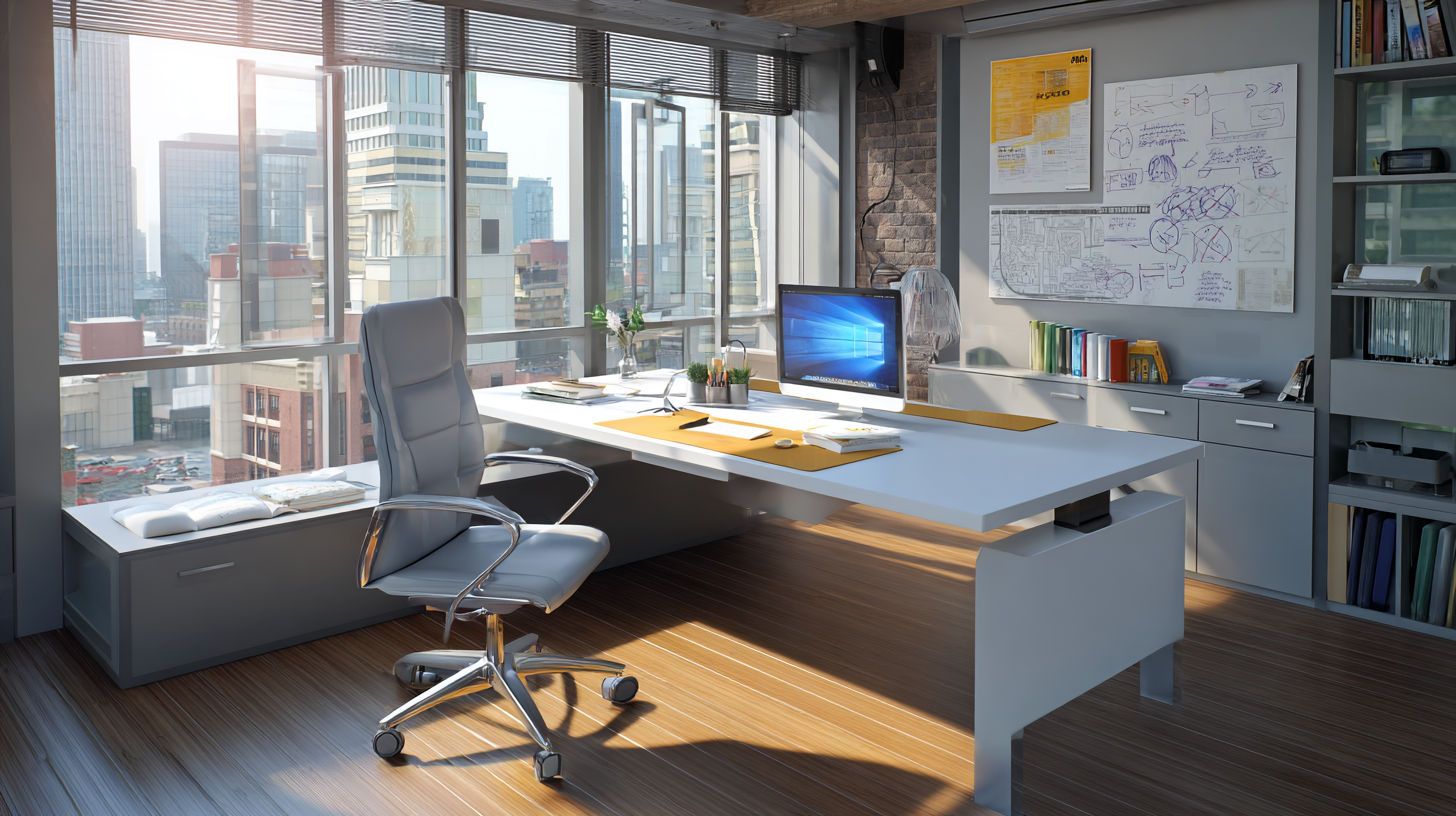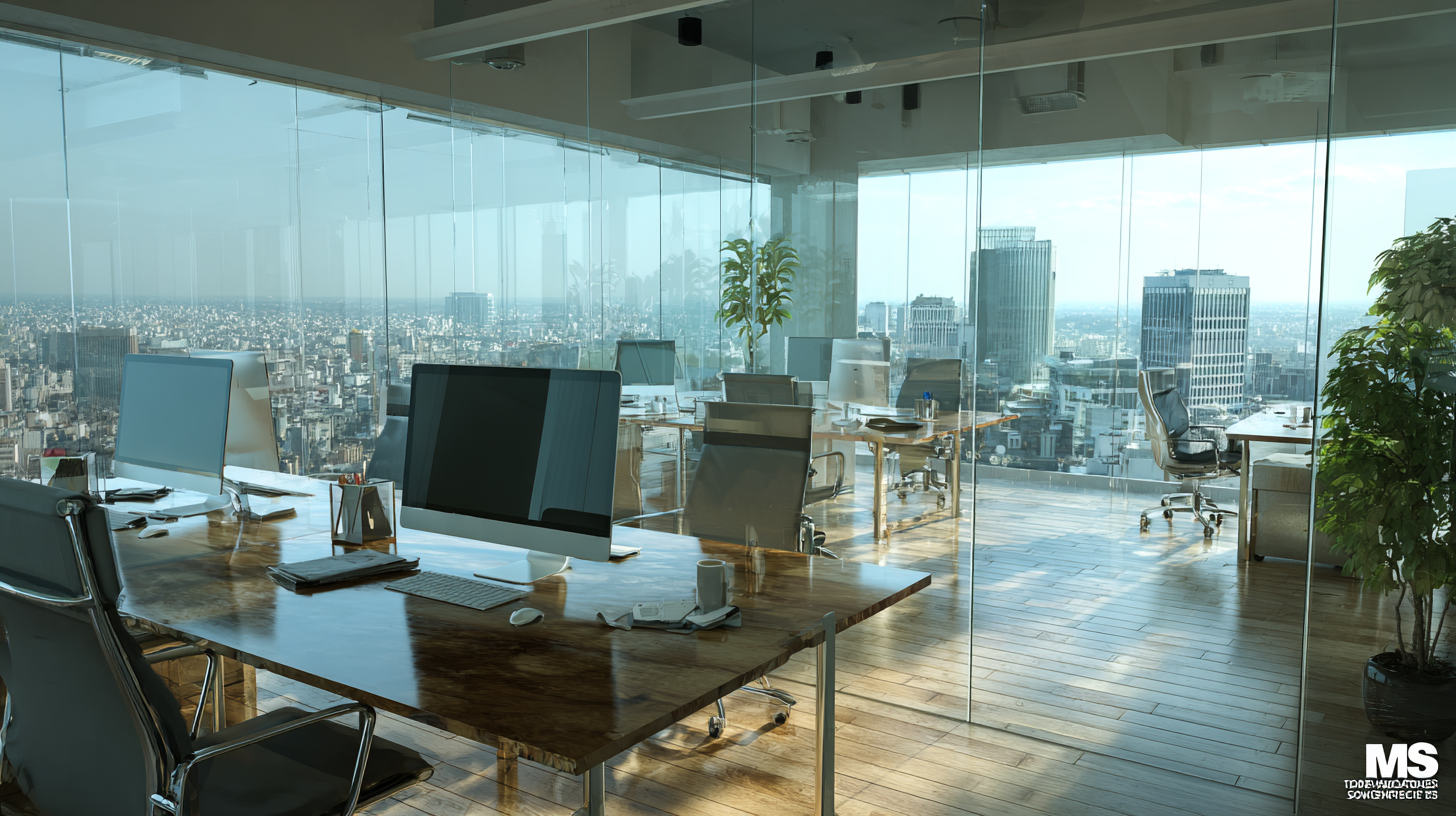Largest Selection of New and Used Office Furniture! Call 1-855-885-3375 or visit a showroom today!
Blog
How to Navigate Import and Export Certifications for the Best Modern Office Desks
In today's fast-paced business environment, selecting the right modern office desks is crucial not only for aesthetics but also for long-term functionality and investment value. As companies recognize the importance of creating productive and comfortable workspaces, understanding the implications of import and export certifications becomes paramount. These certifications can greatly affect the quality, warranty, and overall cost associated with modern office desks.

In this blog, we will explore the benefits of after-sales service and the potential repair costs that come into play when purchasing these essential pieces of office furniture. By navigating through the various certifications and understanding their impact, businesses can make informed decisions that enhance both employee satisfaction and operational efficiency.
Understanding Import and Export Certifications for Office Furniture
When navigating the complex landscape of import and export certifications for office furniture, particularly modern office desks, it is vital to understand the specific requirements that ensure compliance with international standards. According to the Global Furniture Market Report 2023, the demand for certified office furniture has increased by over 35% in the last three years, driven by a growing emphasis on sustainability and workplace ergonomics. Manufacturers must be aware of certifications such as the Forest Stewardship Council (FSC) for sustainable sourcing and the ANSI/BIFMA standards that ensure products meet safety and performance criteria.
In addition, various regions, including the European Union and North America, have imposed stringent regulations on imports to protect consumers and promote environmental sustainability. For instance, a report by the International Trade Administration highlights that furniture imports to the U.S. must comply with specific labeling and safety regulations, which can be a significant barrier for non-compliant foreign manufacturers. Understanding these certifications not only helps in navigating regulatory challenges but also enhances brand credibility and market competitiveness in the global landscape of office furniture.

Key Certifications Required for Modern Office Desks
When it comes to sourcing modern office desks, understanding key certifications is essential for ensuring quality and compliance. One of the most important certifications is the ANSI/BIFMA (American National Standards Institute/Business and Institutional Furniture Manufacturers Association) certification, which guarantees that office furniture meets rigorous safety and performance standards. This certification ensures that the desks can withstand the demands of daily use, providing durability and reliability for any workspace.
Another critical certification to consider is the Greenguard certification, which focuses on the indoor air quality of products. Desks that hold this certification have been tested for low emissions of volatile organic compounds (VOCs), making them safer for indoor environments. With the rise in remote work and long hours spent at desks, choosing furniture that contributes to a healthier workspace is becoming increasingly important. Additionally, looking for FSC (Forest Stewardship Council) certification can help consumers ensure that the wood used in their office desks is sourced sustainably, aligning with environmentally responsible practices.
These certifications not only contribute to a better working environment but also enhance the overall value of the modern office.
Navigating the Regulatory Landscape for Office Desk Imports
Navigating the regulatory landscape for office desk imports requires a keen understanding of various international trade laws and compliance measures. As companies engage in exporting office furniture, particularly modern desks, they may face complex regulations that differ significantly across borders. For instance, when exporting to major markets like China, businesses must address intellectual property risks and comply with stringent safety standards that ensure products meet local requirements.
**Tips:** Before initiating the import process, familiarize yourself with country-specific regulations and certifications needed for office furniture. Researching recent changes in the regulatory framework can save time and prevent costly delays. Additionally, consider collaborating with trade compliance experts who can guide you through the necessary certifications and facilitate a smooth import process.
The evolving nature of global trade, particularly in the EU and Asia, has increased the emphasis on supply chain transparency and safety compliance. A report from the International Trade Centre highlights that nearly 40% of businesses face challenges in meeting new import regulations. This emphasizes the need for companies to stay informed about updates in trade compliance, especially those pertaining to furniture materials and chemicals used in manufacturing office desks.
**Tips:** Regularly review industry publications and government resources for updates on regulations affecting your imports. Leveraging technology for tracking compliance can also streamline the process, helping you to efficiently manage documentation and certifications.
Office Desk Import and Export Certifications Overview
Best Practices for Ensuring Compliance in Office Desk Exports
Navigating the complexities of import and export certifications is crucial for businesses dealing in modern office desks. Adhering to international trade regulations ensures compliance and mitigates the risk of penalties. According to a report by the International Trade Administration, approximately 25% of small to medium-sized enterprises face challenges in understanding export documentation, which can lead to costly delays. By implementing best practices in compliance, such as conducting thorough research on the required certifications, companies can streamline their exporting processes and promote smoother transactions.
Furthermore, staying updated with the evolving standards and regulations in the office furniture industry is essential. A study published in the Journal of Global Trade indicates that companies actively engaging in compliance training experience a 40% reduction in shipping issues. This includes maintaining proper certifications like ANSI/BIFMA, which assures that products meet safety and sustainability standards. By leveraging resources such as trade associations and regulatory agencies, businesses can not only ensure compliance but also enhance their reputation in the marketplace, ultimately leading to increased customer trust and satisfaction.

The Impact of Certifications on Quality and Marketability of Office Desks
When choosing modern office desks, understanding the impact of certifications is crucial for both quality assurance and marketability. Certifications can serve as a benchmark, indicating that a product meets specific safety, sustainability, and quality standards. For instance, desks that carry certifications from organizations like GREENGUARD or ANSI signify that they have undergone rigorous testing, ensuring they contribute to a healthier work environment and comply with industry benchmarks.
Tip: Always look for desks that have passed third-party evaluations, which can add value to your purchase by guaranteeing longevity and safety in the workspace.
Moreover, well-certified office desks can be more appealing to potential buyers or company stakeholders. With growing awareness around environmental sustainability, desks that are made from sustainably sourced materials or are carbon-neutral may attract a broader customer base. In this competitive market, positioning your products as certified can enhance reputation and trust among consumers.
Tip: Highlight the certifications in your marketing materials, allowing customers to easily recognize the superior quality and eco-friendliness of your office desks.
